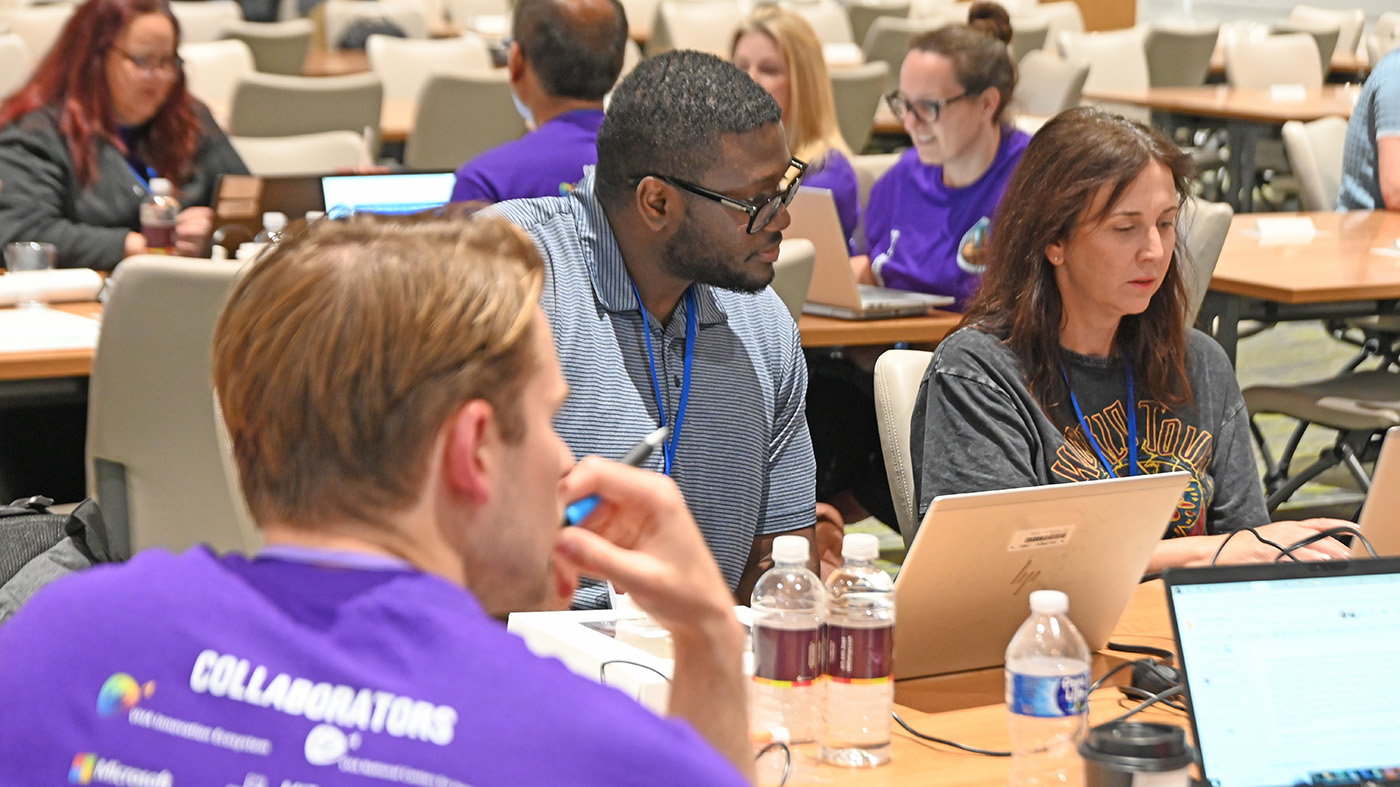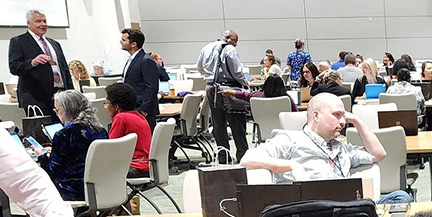Last month at the University of South Florida Morsani College of Medicine in Tampa, Florida, over 300 participants gathered at a hackathon to develop solutions address some of the most pressing health care challenges faced by Veterans.
The Veterans Health – Massachusetts Institute of Technology (MIT) Hacking Medicine 2024 was hosted by the James A. Haley Veterans’ Hospital (JAHVH) and made possible through a collaboration with VHA Innovation Ecosystem (VHA IE), Microsoft and MIT Hacking Medicine.
The hackathon focused on three VA health care priorities: Connecting Veterans to the soonest and best care; preventing Veteran suicide; and hiring faster and more competitively. Supported by over 50 mentors and judges from diverse backgrounds, teams used Microsoft’s artificial intelligence (AI) tools to rapidly develop groundbreaking solutions.
Democratizing innovation and fostering community collaboration
A hackathon is a short, intense problem-solving and solutioning event designed to bring together diverse teams which compete to develop a solution addressing a set of identified problems. For Dr. Indra Sandal, chief of Innovation at Haley VA and the hackathon’s founder, having an event that welcomes all skill levels and backgrounds was essential. “Our goal was to make AI technologies accessible to every participant. This hackathon wasn’t just for engineers and data scientists, but any frontline employee motivated to drive change.”
A team of Microsoft engineers delivered an overview of AI and introduced participants to a suite of application-building tools designed to generate real outcomes during the event. This skill-building empowered participants to continue driving innovation in their work beyond the hackathon.
The hackathon showcased the power of AI to democratize analytics and solution development, allowing more individuals to take their first step toward innovation. Mentors assisted teams of VA and non-VA employees from across the nation with technology development, one-on-one mentoring and solution testing. This approach ensured that participants could develop technical solutions regardless of their background. “I learned so much and got to collaborate with people that I would not have had the opportunity to work with,” said one hacker.
John Couris, CEO of Tampa General Hospital, highlighted the importance of innovation and collaboration in health care. “I’m really impressed that this group is here looking at ways you deliver care to our Veterans because there is no more important population than those who have served us and sacrificed for us.”

Innovating with and for Veterans
Including Veterans in the hackathon was an integral element to honoring its purpose and ensuring that solutions meet Veterans’ needs. Veterans Counseling Veterans is a non-profit dedicated to suicide prevention. Army Veteran Tony Williams appreciates events like the hackathon for fostering diverse perspectives. “Events like this hackathon, involving the broader community bring valuable perspectives and significantly contribute to our efforts to prevent Veteran suicide,” Williams said.
“Veterans are without a doubt going to benefit from this event. There is also the possibility to impact and improve the community around us. When we improve Veterans’ care, when we improve their pathways, we also improve the pathway of our community,” said Timothy Cooke, director of the Orlando VA.
Looking ahead
Winning teams’ solutions included a dynamic, AI-powered patient safety plan decision tool, an AI tool for non-mental health staff to generate early suicide risk detection through voice biomarkers and a generative AI, and natural language-processing solution aimed at reducing bias and improving consistency in resume evaluation.
“If we can serve just one Veteran through mental health solutions, it can mean an extra day, an extra birthday, an extra anniversary with loved ones. That impact is immeasurable,” said Dan Coleman, Microsoft.
The hackathon received overwhelmingly positive feedback, underscoring its ability to inspire continued involvement and collaboration in transformative health care initiatives. The winning teams from each category will progress to a Makeathon later this year to develop their concepts into working prototypes.
“This hackathon was powered by collaboration to create an ecosystem for people, technology and community stakeholders to deliver for our Veterans,” said Sandal.
Want to learn more about innovation at VA? Visit our website, scan Diffusion Marketplace, subscribe to our weekly newsletter and explore VA PathFinder to learn more about our opportunities.
Topics in this story
Link Disclaimer
This page includes links to other websites outside our control and jurisdiction. VA is not responsible for the privacy practices or the content of non-VA Web sites. We encourage you to review the privacy policy or terms and conditions of those sites to fully understand what information is collected and how it is used.
More Stories
Bob Jesse Award celebrates the achievements of a VA employee and a team or department that exemplifies innovative practices within VA.
The Medical Foster Home program offers Veterans an alternative to nursing homes.
Watch the Under Secretary for Health and a panel of experts discuss VA Health Connect tele-emergency care.







